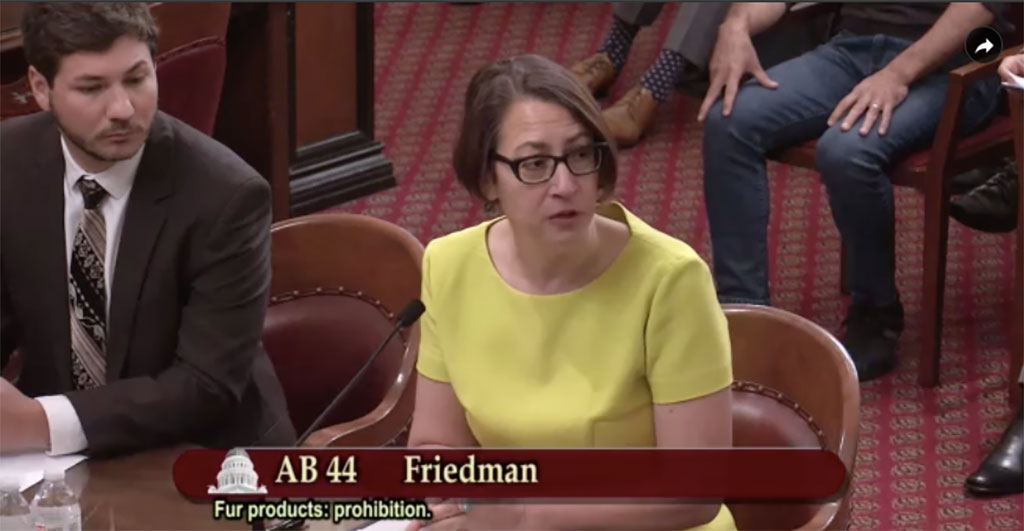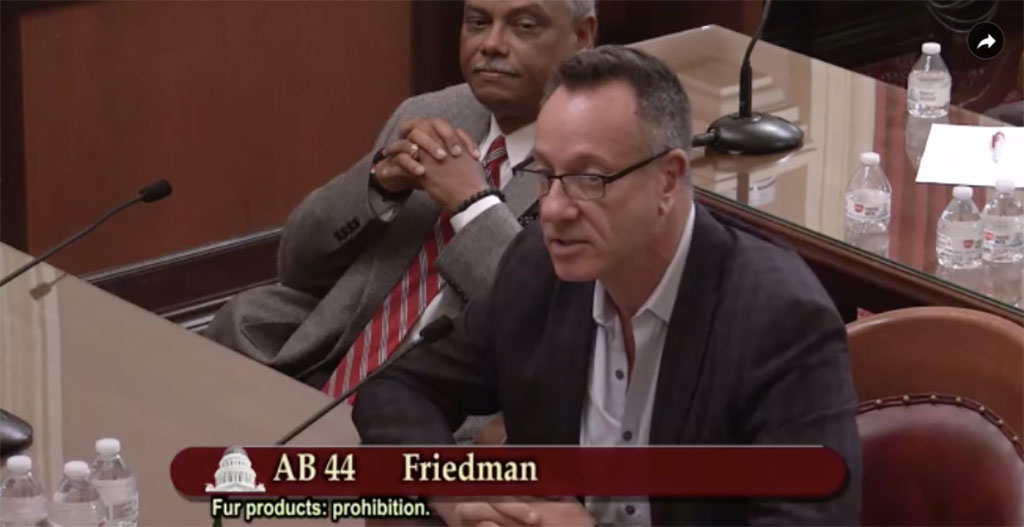On a recent Saturday night, there was a vigil outside the Hollywood home of Ed Buck commemorating the second anniversary…
Read More

On a recent Saturday night, there was a vigil outside the Hollywood home of Ed Buck commemorating the second anniversary of the death of Gemmel Moore, a young black man who was found dead in Mr. Buck’s apartment of a drug overdose. It is one of two similar deaths of African American men in Mr. Buck’s apartment involving methamphetamine. In the case of Mr. Moore, his own journal entries in the weeks leading up to his death called out how Mr. Buck had introduced him to the drug, and injected him with it. And a report from the police investigation of the scene noted that more than 20 syringes were found in Buck’s apartment along with a cabinet full of illegal drugs and paraphernalia.
Buck, a wealthy white political donor, is an animal rights activist who began the campaign to ban fur in California, pushing through a ban on fur sales in West Hollywood by gathering volunteers and funding from the animal rights community to support John D’Amico’s first run for city council. Mr. D’Amico in turn introduced the West Hollywood ordinance. During the fur ban debate, a witness quoted Mr. Buck as saying we can tell a lot about a person by the way they treat animals. What does Mr. Buck’s treatment of people say about him?
If you run the rolls of political donations over the past decade, in order to further his agenda Mr. Buck has donated to the campaigns of numerous California Democrats in West Hollywood, Los Angeles and at the state level, many of whom are still in office. He has been one of the largest donors to Animal PAC/Social Compassion in Legislation for Animals. Among the beneficiaries of this PAC are Henry Stern for State Senate ($4,200), John Perez for Assembly ($3,900), Los Angeles Mayor Eric Garcetti and Los Angeles County District Attorney Jackie Lacy. (The latter two have returned their contributions.)
Other Celebrated Activists

Mr. Buck’s legacy leads one to think about some of the other celebrated animal activists here in California. Among them are Nasim Aghdam, the animal rights activist and vegan athlete who shot a man and two women with a handgun after storming YouTube’s headquarters in San Bruno in April 2018. How about Joseph Buddenberg and Nicole Kissane, prosecuted for their acts of vandalism and terror against Kim Graf, owner of Graf Furs in San Diego, and her elderly parents? This dynamic duo spread flesh-eating acids on the doors and windows of their cars, their homes, their store and the parents' RV.
And then there’s the very disturbing news about PETA: They kill animals! The Virginia Department of Agriculture and Consumer Services (VDACS) tracks the number of cats and dogs taken in by shelters in the state of Virginia each year, how many were reclaimed by their owners, adopted out, transferred to other agencies or euthanized.
Between 1998 and 2018 VDACS reported 47,316 animals taken in by PETA and 39,961 euthanized. That’s 84.46%! Why? According to Ingrid Newkirk, co-founder of PETA, pet ownership is “an abysmal situation.” She further elaborated on her goal for destroying the human-pet bond: “If people want toys, they should buy inanimate objects. If they want companionship, they should seek it with their own kind. In the end, I think it would be lovely if we stopped this whole notion of pets altogether.”
Just this month Wayne Hsiung, the co-founder and lead organizer of Direct Action Everywhere, announced he was stepping down in advance of multiple criminal trials. Direct Action Everywhere is a co-sponsor of Assembly Bill 44, and to date Mr. Hsiung has been present at nearly all of the committee hearings on the bill.
(Not to be outdone, in 2000, animal activist Marc Ching, founder of Animal Hope and Wellness who has testified in support of AB 44, was sentenced to prison for kidnapping.)
Lawmakers in Bed with Lawbreakers

AB 44 would ban Californians from the choice of buying natural fur clothing. But it won’t stop there. The bill’s backers want to ban Californians from buying leather, wool, burgers, and other animal products.
They say that politics makes strange bedfellows. But it appears that Assemblywoman Laura Friedman, the author of AB 44, has lost her ability to discriminate.
These are the people behind Friedman’s campaign to ban fur. They would close legitimate, taxpaying businesses, putting thousands of people up and down the state out of jobs, and forcing their personal agenda on consumers.
Are we in a new era where lawmakers carry the torch for lawbreakers? Is this the proper role for our legislature?
Hopefully not. But only if regular Californians make their voices heard.
***
This article first appeared at medium.com, and is reproduced with the author's permission.
To learn more about donating to Truth About Fur, click here.










